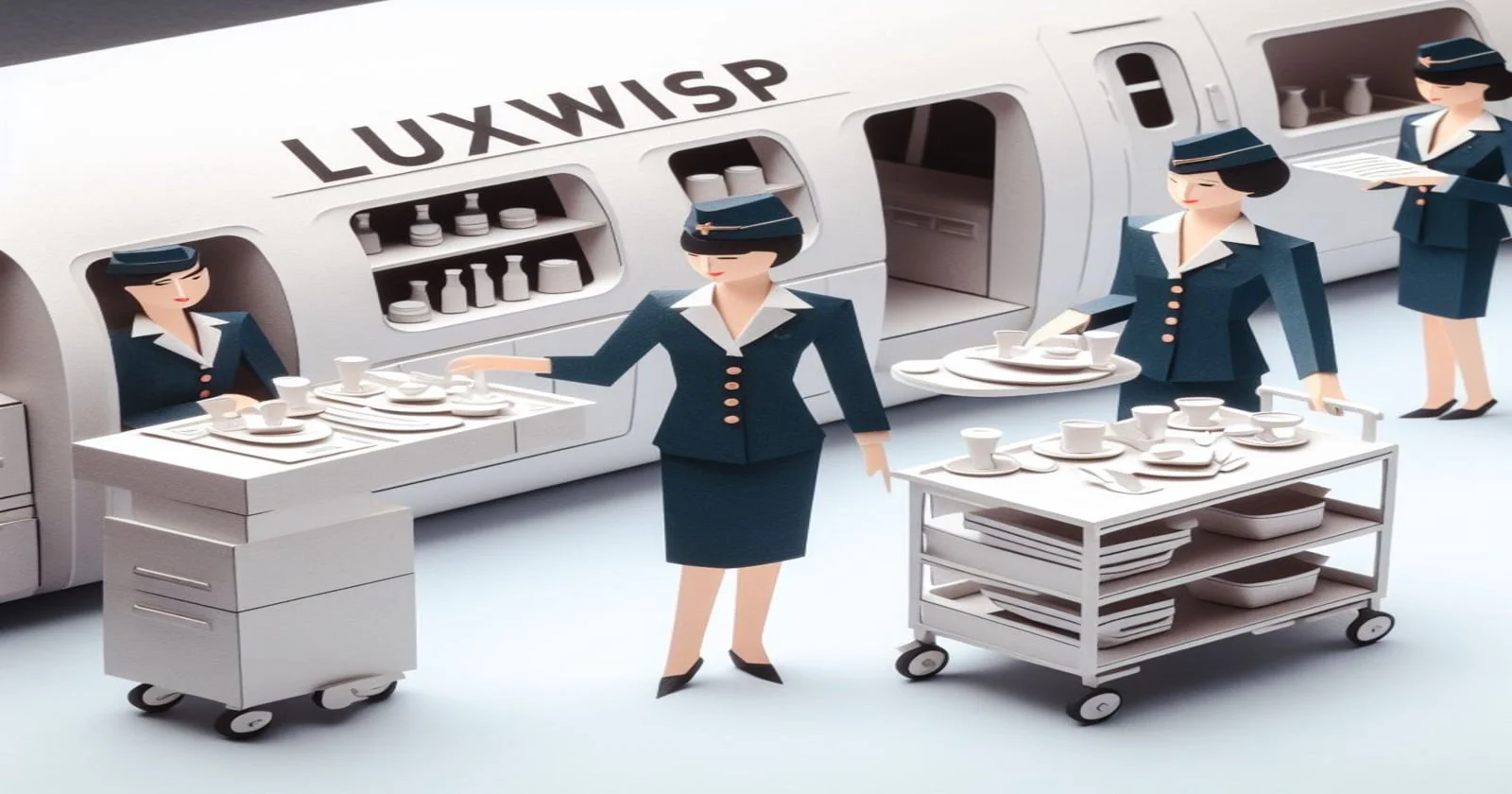The pros of being a pilot are the potential for a high salary, extensive travel opportunities allowing for the exploration of different cultures, and significant job security. Pilots often have access to a wide range of job opportunities in various sectors of aviation. Additionally, they enjoy numerous perks such as travel discounts for family and friends, complimentary food, and sometimes free flights.
The cons of being a pilot are working long hours, which often include nights and weekends. The responsibility of ensuring the safety of passengers and crew can be a source of considerable stress. Flight training, a prerequisite for the profession, can be quite costly. Pilots also face a higher risk of accidents compared to many other professions. Health issues can be a significant concern, as certain medical conditions can disqualify an individual from flying.
Takeaways:
- 2022 Median Pay: Airline and Commercial Pilots: $148,900/year.
- Earnings Potential: Commercial pilots: $123,250/year; Airline pilots: $211,790/year.
- Employment Estimate (May 2022): Commercial pilots: 48,750.
- Projected Growth (2022-2032): 4% for airline and commercial pilots.
- Annual Job Openings (Average): 16,800 for pilots.
- Top Earning Industry: Merchant wholesalers, nondurable goods – $198,980/year.
- State Employment Leaders: Florida and California.
- Highest State Wages: Connecticut (commercial pilots) and Washington (airline pilots).
- Top Metros: Highest employment in Miami; Highest pay in Louisville.
- Entry Requirements: No specific educational credentials but moderate-term on-the-job training required.

| Pros of Being a Pilot | Cons of Being a Pilot |
|---|---|
| High Earnings Potential | Variable Earnings Based on Location |
| Robust Job Market | Initial Training Costs |
| Stable Job Growth | Demanding Work Schedule |
| Specialized High-Paying Industries | Physical and Mental Stress |
| Geographical Opportunities | Industry Volatility |
| Metropolitan Advantages | Regular Health Check-ups and Certifications |
| Moderate Entry Requirements | Potential Health Risks |
| Broadened Worldview | Career Longevity Concerns |
| High Respect and Esteem | Economic Dependency |
| Opportunities for Career Advancement | Job Saturation in Popular Locations |
Pros of Being a Pilot
- High Earnings Potential: The financial rewards of being a pilot are substantial, with the 2022 median pay for airline and commercial pilots being $148,900 annually. Specifically, airline pilots have a median wage of $211,790, while commercial pilots earn an average of $123,250, demonstrating a lucrative earning potential that exceeds many other professions.
- Robust Job Market: The national employment estimate for commercial pilots as of May 2022 stands at 48,750. This showcases a solid job market, and with an estimated 16,800 job openings annually over the decade, there’s an abundance of opportunities for both new and experienced pilots.
- Stable Job Growth: The profession is not just about current opportunities; its future also looks promising. From 2022 to 2032, the employment growth rate for airline and commercial pilots is projected to be 4%, indicating that the demand for pilots will remain steady in the years to come.
- Specialized High-Paying Industries: Not only is the overall pay impressive, but there are also industries where pilots can earn even more. For instance, in the merchant wholesalers, nondurable goods sector, commercial pilots can earn an annual mean wage of $198,980, allowing for the possibility of maximizing one’s income based on industry choice.
- Geographical Opportunities: Locations like Florida and California are leading in terms of employment levels for pilots. Moreover, states like Connecticut and Washington offer the highest annual mean wages for the profession. This highlights the fact that pilots can choose from various locations, based on their personal and financial preferences, to optimize their career paths.
- Metropolitan Advantages: Diving deeper into geography, metropolitan areas also present unique advantages. Pilots working in Miami have the highest employment, while those in Louisville earn the most. Such geographical nuances offer pilots varied opportunities to align their career with their desired lifestyle.
- Moderate Entry Requirements: One of the benefits of entering the piloting profession is that it doesn’t necessarily require specific educational credentials. While training and certification are a must, the pathway to becoming a pilot may be more accessible than careers that demand extensive educational backgrounds.
- Broadened Worldview: Being a pilot often means traveling to various destinations, encountering different cultures, and meeting people from diverse backgrounds. This constant exposure can broaden a pilot’s perspective, enriching their personal and professional life.
- High Respect and Esteem: Pilots are often held in high regard due to the skill and responsibility associated with their job. Being able to command an aircraft, ensure the safety of passengers, and tackle challenges mid-air brings a certain prestige and respect from society.
- Opportunities for Career Advancement: The aviation industry provides a clear progression path. As pilots gain experience and accumulate flight hours, they can move on to flying larger aircraft or taking on roles with more responsibility, like becoming a captain or chief pilot. This provides continuous growth opportunities and varied experiences within the same profession.

Cons of Being a Pilot
- Variable Earnings Based on Location: While pilots can earn a significant income, the actual earnings can vary based on location. For example, pilots might earn more in Washington or Connecticut compared to other states. This geographical variance may force pilots to relocate for better pay, causing potential disruptions in personal lives.
- Initial Training Costs: Even though specified educational credentials may not be needed, the initial training and certification to become a pilot can be expensive. This cost barrier might deter potential entrants who do not have the means to afford the necessary training.
- Demanding Work Schedule: The life of a pilot isn’t always glamorous. It can involve long hours, overnight stays, and frequent time away from home. This erratic schedule can be challenging for those who value consistent routines or have family commitments.
- Physical and Mental Stress: Flying an aircraft comes with a high level of responsibility. The safety of passengers and crew rests on a pilot’s shoulders, leading to potential mental and physical stress, especially during adverse weather conditions or unexpected events.
- Industry Volatility: The aviation industry can be affected by external factors such as economic downturns, geopolitical events, or health crises like pandemics. Such occurrences can lead to job losses or salary cuts in the short term, making the profession somewhat unpredictable.
- Regular Health Check-ups and Certifications: Maintaining a pilot’s license requires frequent health check-ups and recurrent training. The need for optimal health and regular certification can be a strain, both financially and in terms of time commitment.
- Potential Health Risks: Pilots are exposed to varying levels of radiation at high altitudes, which might have long-term health implications. Additionally, the irregular work hours can disrupt sleep patterns, which might lead to health problems over time.
- Career Longevity Concerns: Due to stringent health and fitness requirements, pilots might face career interruptions or even early retirement if they can’t meet the standards. This could impact their long-term earnings and career satisfaction.
- Economic Dependency: As lucrative as the pilot profession might be, earnings and job opportunities are closely tied to the health of the airline industry. Economic downturns, fuel price hikes, or reduced passenger demand can directly impact a pilot’s job security and income.
- Job Saturation in Popular Locations: While places like Miami have high employment for pilots, it could also mean that these popular locations might be saturated, making it challenging for new entrants to find jobs or for established pilots to switch employers within the same region.
High Earning Potential
Pilots have the potential to earn high salaries, making it a lucrative career choice. With the increasing demand for air travel, the aviation industry offers attractive compensation packages to attract and retain skilled pilots. The average salary for airline pilots is around $120,000 per year, and experienced pilots can earn even more. Moreover, pilots often receive additional benefits such as health insurance, retirement plans, and travel perks, further enhancing their overall earnings.
One of the factors that contribute to the high earning potential of pilots is the extensive training and qualifications required to obtain a pilot’s license. Pilots undergo rigorous training programs, including flight hours, simulator sessions, and theoretical exams, investing a significant amount of time and money. As a result, their expertise and skills command a premium in the job market.
Furthermore, pilots have opportunities for career advancement and specialization, which can lead to higher salaries. As pilots gain experience and accumulate flight hours, they can progress to higher positions within the airline industry, such as becoming a captain or an instructor. These positions often come with increased responsibilities and higher pay scales.
Exciting and Adventurous Lifestyle
Flying as a pilot offers an exhilarating and adventurous lifestyle, as they get to explore new destinations and experience the thrill of being up in the air. Pilots have the opportunity to see the world from a unique perspective and witness breathtaking views that most people can only dream of.
Here are some reasons why the lifestyle of a pilot is exciting and adventurous:
- Traveling to new destinations: Pilots have the privilege of visiting different cities and countries, allowing them to immerse themselves in diverse cultures and experience new adventures. From bustling cities to remote islands, pilots have the chance to explore a wide variety of destinations.
- Meeting new people: As pilots travel to different locations, they’ve the opportunity to interact with people from various backgrounds and cultures. This allows them to broaden their horizons and develop a global perspective.
- Challenging and dynamic work environment: Being a pilot requires handling different situations and challenges, such as adverse weather conditions and technical issues. This dynamic work environment keeps pilots on their toes and ensures that no two flights are ever the same.
Opportunities for Travel and Exploration

With endless possibilities and a sense of freedom, the opportunities for travel and exploration as a pilot are boundless. Pilots have the unique privilege of being able to travel to various destinations around the world, experiencing different cultures and landscapes. Whether it’s a bustling city, a tropical paradise, or a remote mountain range, pilots have the chance to see it all.
One of the greatest advantages of being a pilot is the ability to visit multiple destinations in a short amount of time. They can fly from one city to another, exploring different parts of the world within days or even hours. This allows pilots to satisfy their sense of adventure and curiosity, as they constantly discover new places and meet new people.
To showcase the vast opportunities for travel and exploration as a pilot, here is a table highlighting some of the popular destinations that pilots can visit:
| Destination | Description |
|---|---|
| Paris, France | The City of Love, known for its iconic landmarks such as the Eiffel Tower and Louvre Museum. |
| Bali, Indonesia | A tropical paradise with stunning beaches, vibrant culture, and lush landscapes. |
| New York City, USA | The city that never sleeps, offering a diverse range of attractions, from Broadway shows to world-class dining. |
| Cape Town, South Africa | A breathtaking coastal city with majestic mountains, stunning beaches, and rich wildlife. |
| Tokyo, Japan | A futuristic metropolis blending tradition and modernity, famous for its technology, cuisine, and vibrant nightlife. |
As pilots embark on their journeys, they not only get to enjoy the thrill of flying but also have the opportunity to immerse themselves in the beauty and wonders of the world. The possibilities for travel and exploration are truly endless for those who choose a career in aviation.
Job Stability and Demand
One of the pros of being a pilot is the stability and demand of the job. In today’s fast-paced world, air travel has become an integral part of our lives, and the demand for pilots continues to grow. Here are some reasons why being a pilot offers job stability and high demand:
- Globalization and Expansion: With the globalization of businesses and the expansion of airline networks, there’s a constant need for more pilots to operate the growing number of flights. This trend is expected to continue in the coming years, ensuring a stable job market for pilots.
- Retirement of Experienced Pilots: Many experienced pilots are reaching retirement age, creating a significant void in the industry. This opens up numerous opportunities for aspiring pilots to step into these vacancies and secure stable positions.
- Emerging Markets: The aviation industry is expanding rapidly in emerging markets, such as Asia and the Middle East. As these regions continue to experience economic growth and increased air travel, the demand for pilots will soar, providing excellent job prospects.
Personal and Professional Growth
When it comes to personal and professional growth, being a pilot offers numerous career advancement opportunities. Pilots can strive to become captains, instructors, or even move into management roles within the aviation industry. This allows them to constantly challenge themselves and develop new skills.
Additionally, the demanding nature of the job helps pilots build self-confidence and independence as they make critical decisions and navigate through various situations.
Career Advancement Opportunities
Pilots can experience personal and professional growth through opportunities for career advancement. As they progress in their careers, pilots have the chance to take on more responsibilities and gain valuable experience. Here are some key ways in which pilots can benefit from career advancement:
- Advanced Training: Pilots can undergo specialized training programs to enhance their skills and knowledge in specific areas such as aircraft systems, safety management, or leadership.
- Promotions: With experience and seniority, pilots can move up the ranks and become captains or even chief pilots, allowing them to lead a team and make important decisions.
- International Assignments: Career advancement can also provide pilots with the opportunity to fly to different countries and experience diverse cultures, expanding their horizons both personally and professionally.
These career advancement opportunities not only contribute to pilots’ personal and professional growth but also make their job more fulfilling and rewarding.
Self-Confidence and Independence
Gaining experience as a pilot allows them to develop self-confidence and cultivate independence, fostering both personal and professional growth. As pilots gain more hours in the cockpit, their skills and decision-making abilities improve, leading to a boost in self-assurance. They become more comfortable handling challenging situations and making split-second decisions, which translates into increased confidence in their abilities. This self-confidence not only benefits them professionally but also spills over into their personal lives, enabling them to tackle challenges with a sense of assurance and resilience.
The independence that comes with being a pilot is another significant aspect of personal and professional growth. Pilots have the freedom to travel to various destinations, explore new cultures, and experience different perspectives. They are responsible for the safety of their passengers and the success of their flights, which requires them to be self-reliant and resourceful. Pilots must make crucial decisions independently and handle unforeseen circumstances with composure and resilience. This level of independence not only enhances their professional skills but also nurtures personal growth, as they learn to adapt to new environments and overcome obstacles.
| Self-Confidence | Independence |
|---|---|
| Improved decision-making abilities | Freedom to travel |
| Increased comfort in challenging situations | Self-reliance and resourcefulness |
| Assurance in their professional skills | Adaptability and resilience |
Challenging Work Environment

Navigating through turbulent skies, pilots often face a demanding and high-pressure work environment. The challenging work environment of a pilot can be both mentally and physically exhausting. Here are some key aspects of the job that contribute to the difficulty:
- Long working hours: Pilots often work irregular schedules, including overnight flights and long-haul journeys. This can lead to disrupted sleep patterns and fatigue, making it essential for pilots to manage their rest and wellness effectively.
- Constant decision-making: Pilots are responsible for making critical decisions in real-time, especially during emergencies or adverse weather conditions. The pressure to make the right choices quickly can be overwhelming and requires a high level of situational awareness and problem-solving skills.
- Strict regulations and procedures: Pilots must adhere to stringent aviation regulations and follow standard operating procedures to ensure safety. These procedures are designed to minimize risks, but they can also add complexity and increase stress levels during demanding situations.
Despite the challenges, many pilots find great satisfaction in overcoming these obstacles and fulfilling their passion for flying. The ability to handle high-pressure situations, make split-second decisions, and work in a dynamic environment are some of the rewarding aspects of being a pilot.
Work-Life Balance Challenges
Juggling personal commitments and professional responsibilities can be a struggle for pilots, as they strive to maintain a healthy work-life balance. Being a pilot often means being away from home for extended periods and irregular working hours, which can make it challenging to find time for personal life and fulfill commitments outside of work. The table below highlights some of the key work-life balance challenges faced by pilots:
| Challenge | Impact | Solution |
|---|---|---|
| Irregular schedule | Difficulty planning | Establishing a routine and communicating with family |
| Absence from home | Strained relationships | Regular communication and quality time together |
| Fatigue | Reduced energy and focus | Adequate rest and healthy lifestyle |
| Time away from hobbies and interests | Limited personal time | Making the most of free days and breaks |
Maintaining a work-life balance requires careful planning and effective communication with loved ones. Pilots often make use of technology to stay connected with their families while away, and it is crucial for them to prioritize quality time together when they are home. Additionally, managing fatigue by getting enough rest and adopting a healthy lifestyle can help pilots stay energized and focused both at work and in their personal lives. While being a pilot can present unique work-life balance challenges, with proper strategies and support, it is possible to find harmony between professional responsibilities and personal commitments.
Frequently Asked Questions
What Are the Training and Education Requirements to Become a Pilot?
To become a pilot, one must meet the training and education requirements. These typically include obtaining a private pilot license, completing flight hours, undergoing medical examinations, and obtaining additional certifications for specific types of aircraft.
What Are Some of the Potential Health Risks Associated With Being a Pilot?
Being a pilot can have potential health risks. Long hours of sitting can lead to sedentary lifestyle and associated health issues. Additionally, exposure to high altitude can cause altitude sickness and increased risk of certain medical conditions.
How Does the Pilot Job Market Vary Between Different Types of Aircraft (Commercial, Private, Military, Etc.)?
The pilot job market varies between different types of aircraft, including commercial, private, and military. Factors such as demand, competition, and qualifications differ, leading to varying opportunities and challenges in each sector.
Are There Any Age Restrictions or Limitations for Becoming a Pilot?
Are there any age restrictions or limitations for becoming a pilot? Yes, there are age requirements in place to ensure safety and competence. These restrictions vary depending on the type of aircraft and the country’s aviation regulations.
What Are Some of the Typical Career Progression Opportunities for Pilots?
Some typical career progression opportunities for pilots include moving up from regional to major airlines, becoming a captain, and potentially transitioning into management or training roles within the aviation industry.










